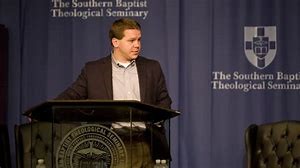-
Historical Head Covering: Linus
Linus (identified as the Linus in 2 Timothy 4:21) was close to the Apostle Peter. Tradition says he took over as a leader of the church when Peter was crucified. In The Book of the Popes, he is named as the second Pope, even though there were no official Popes at that time. Here is the revelant quote: He, [Linus] by direction of the blessed Peter, decreed that a woman must veil her head to come into the church. The Book of the Popes (Liber pontificalis) p6 This is possibly the first mention of head coverings outside of the Bible. It is found in the mouth of Linus. I say it…
-
The History of Head Coverings – it’s useful but be careful
One of the things people ask about head covering is “What has the church has said down the centuries?” This is a valuable question, but it is also a tricky one to answer because so much can be lost when quoting them. You can see this in an excellent little book by David Phillips called, Headcovering Throughout Christian History. David Phillips brings together a whole host of quotes from history to show how consistently head covering has been practiced. It is a very helpful book for that purpose, but if you rely on his book to prove more specific points, you will find the quotes can actually be quite misleading. A…
-
Head Covering in the Bible – An Overview
1 Corinthians 11:2-16 is where the Bible talks about head covering. The passage was written by a man named Paul. Paul was writing to the church in the city of Corinth during the first century AD/CE. This is it. 2 I praise you for remembering me in everything and for holding to the traditions just as I passed them on to you. 3 But I want you to realize that the head of every man is Christ, and the head of the woman is man, and the head of Christ is God. 4 Every man who prays or prophesies with his head covered dishonors his head. 5 But every woman who prays or prophesies with her head uncovered dishonors her head—it…
-
Why do we dislike head covering?
It’s said that the first step towards solving a problem is to admit we have one. We have one. We don’t like head covering. In fact, we dislike it so much, that we approach this passage of Scripture trying to find ways to avoid applying it. But if we are to give this passage a fair shake, we need to hear what Paul is saying here with a heart leaning toward obedience. So before we even get to the passage, let’s quickly turn an eye toward ourselves. Why do we dislike head covering? The reason we don’t like head covering is not just because it is not normal in our culture…
-
How is head covering going today?
Head covering is a biblical tradition that has existed in the church since the beginning. For centuries it represented the different callings of Christian men and Christian women. That was the purpose of the tradition. And then, approximately 1950 years later, it went out of fashion. If you ask most people in churches today why it is no longer practiced, the vast majority will not really be able to tell you. “It was a cultural thing,” they’ll say, despite the fact that over almost 2000 years the church has existed in many different cultures and places and still kept the custom. The truth is, of course, it is a cultural…
-
Christian Prophecy and Canon in the Second Century.
This article by Gary Steven Shogren is called, Christian Prophecy and Canon in the Second Century: A Response to B. B. Warfield. It is found in JETS 40/4 (December 1997) 609–626. It contains some fascinating accounts of both prophecy and the Church’s attitude to prophecy during the second century. It includes the Didache, The Shepherd of Hermas, Ignatius, Polycarp, Justin Martyr (pictured above), Eusebius, Irenaeus, and one or two others. These sources are often in direct opposition to the prophecy of the Montanist movement, which was considered heretical by most. An exceptionally clear example of the prophecy and tongues being exercised is found the writing of Irenaeus in 180AD: In…
-
Non-Scripture-Equivalent Prophecy – some ending notes…
As a conclusion to this mini-diatribe on the value, authority, and accuracy of non-Scripture-equivalent prophecy, I’d like to make a couple of comments. 1. Regardless of anything a prophecy says, Jesus and his death and resurrection remain the central point of our faith. As Revelations 19:10 says: the testimony of Jesus is the spirit of prophecy. If a prophecy seems accurate in every way and yet leads us away from the centrality of Jesus and the cross, chuck it out (see also Deut 13:1-3). 2. On the question of prophecy and spiritual gifts, cessationists and continuationists are a lot closer than they often realise in practice. Unfortunately, it is when…
-
Non-Scripture-Equivalent Prophecy – its accuracy.
(Originally posted in 2006) This is the fifth post in the series “Non-Scripture-equivalent prophecy”. Prophecy can be accurate or inaccurate – I don’t think anyone would disagree. There is also prophecy that is partly accurate. How does this happen? Let me draw up a list from innaccurate to accurate and suggest some ideas – some with biblical support, others supported by commonsense and experience. 1. Totally inaccurate. This can occur because someone is speaking prophecy out of their own heart and mind (Ezek 13:1-7) or through an evil spirit (Acts 16:16-18 though interestingly in this case there wasn’t inaccuracy, but it is an example of demonically inspired prophecy). 2. Partly…
-
Non-Scripture-Equivalent Prophecy – its authority.
(Originally posted 2006) Prophecy that communicates the words of God has divine authority. One big issue is deciding whether a prophecy is a divine communication. Another is what “divine authority” means. When a prophecy is given, the task of the church is to discern the authenticity and accuracy of that prophecy (1 Thess 5:19-22; 1 Cor 14:29-33a). The testing of prophecies shall be discussed more fully in a following post, but suffice it to say that Scripture encourages various means of testing revelation: comparison with Scripture, the prophetic reputation of the speaker, the character and life of the speaker, personal subjective discernment, the agreement of other believers and holding the…
-
Non-Scripture-Equivalent Prophecy – 2 Timothy 3:16-17
(Originally posted March 2006) I hadn’t looked at 2 Tim 3:16-17 in relation to prophecy in particular, but, thanks to a comment by Neil, over the past couple of days I have thought a little bit about it. And while I still don’t have the answers to all my questions, I cannot see how cessationists can continue to use these verses to support the cessation of prophecy. Let me explain: What does “All Scripture” in verse 16 refer to? Today it is totally reasonable to apply it to all of the OT and NT as we understand it. But when Paul wrote those words, what was he referring to? He…










